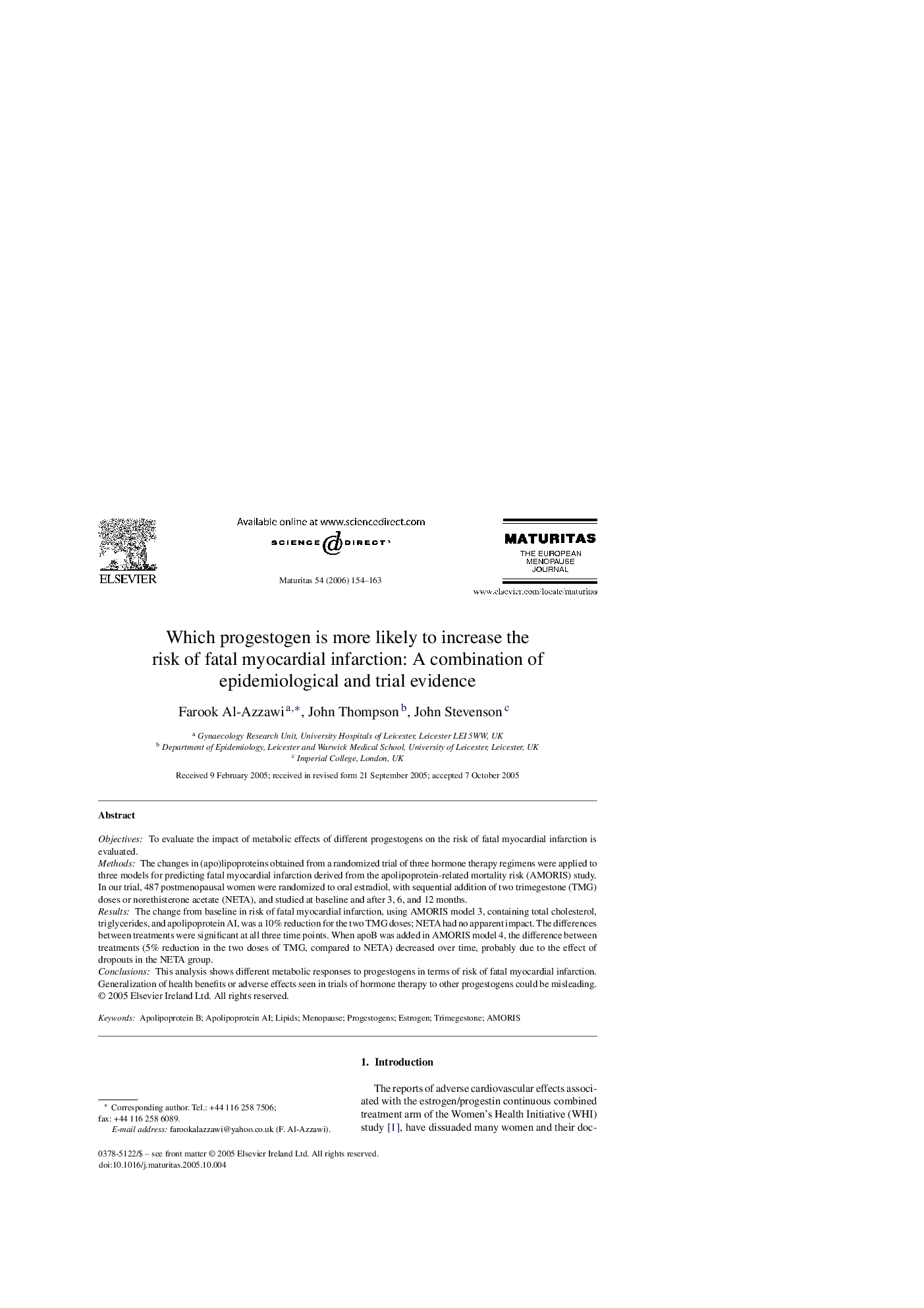| Article ID | Journal | Published Year | Pages | File Type |
|---|---|---|---|---|
| 1919045 | Maturitas | 2006 | 10 Pages |
ObjectivesTo evaluate the impact of metabolic effects of different progestogens on the risk of fatal myocardial infarction is evaluated.MethodsThe changes in (apo)lipoproteins obtained from a randomized trial of three hormone therapy regimens were applied to three models for predicting fatal myocardial infarction derived from the apolipoprotein-related mortality risk (AMORIS) study. In our trial, 487 postmenopausal women were randomized to oral estradiol, with sequential addition of two trimegestone (TMG) doses or norethisterone acetate (NETA), and studied at baseline and after 3, 6, and 12 months.ResultsThe change from baseline in risk of fatal myocardial infarction, using AMORIS model 3, containing total cholesterol, triglycerides, and apolipoprotein AI, was a 10% reduction for the two TMG doses; NETA had no apparent impact. The differences between treatments were significant at all three time points. When apoB was added in AMORIS model 4, the difference between treatments (5% reduction in the two doses of TMG, compared to NETA) decreased over time, probably due to the effect of dropouts in the NETA group.ConclusionsThis analysis shows different metabolic responses to progestogens in terms of risk of fatal myocardial infarction. Generalization of health benefits or adverse effects seen in trials of hormone therapy to other progestogens could be misleading.
